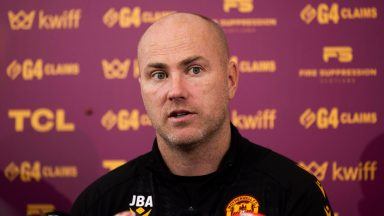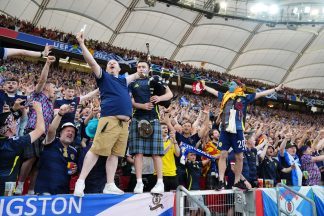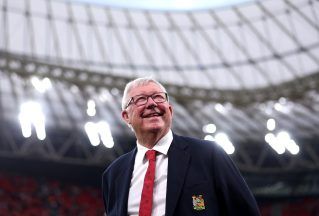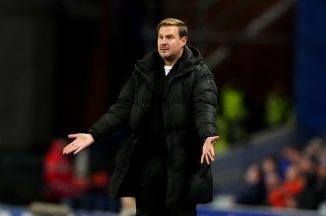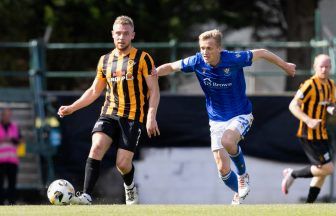Scotland had established themselves as World Cup regulars throughout the 1970s and 80s but the national team had always found reaching the European Championships a much trickier task.
The continental finals had been running since 1960 but the Tartan Army had never had the chance to cheer on their side against Europe’s best in the tournament.
That wait ended in 1992, with Andy Roxburgh’s side heading to Sweden for a tournament that was full of drama and no little excitement.
Nasko Sirakov Scotland Supporters Club

In the 1988 qualifying campaign, the national team managed something that’s still quite hard to take in. Scotland ended qualification just two points behind group winners Republic of Ireland, but somehow also finished fourth out of five teams.
That, if anything, should have been motivation to get it right next time around.
In the qualifiers for Euro 92, Andy Roxburgh’s side were put in a group with San Marino, Bulgaria, Switzerland and Romania. After defeating San Marino 4-0 in their final match, Scotland sat top of the group but knew that a win for Romania after Bulgaria in their final match would see the Eastern Europeans jump to the top of the table and take the ticket for Sweden.
Adrian Popescu put Romania in front, silencing the Bulgarian fans in Sofia as well as the Scots following the action from home but Levski Sofia striker Nasko Sirakov equalised in the second half, earning his side a draw and sending Scotland to the Euros.
The Group of Death
There are no easy draws in the European Championships but Andy Roxburgh and company might have hoped for something a little kinder on their introduction to the tournament.
Scotland were placed in Group 2 and the three teams they were given for company were taken from the top level of the game.
Rinus Michels’ Netherlands team were the reigning champions and the team, captained by Ruud Gullit, was littered with top talent from Milan, Ajax, Barcelona and PSV.
Along with the European champions, Scotland had to face world champions Germany. Two years after defeating Diego Maradona’s Argentina side to lift the World Cup, Jurgen Klinsmann and his teammates were aiming to add a European crown to go alongside it.
Completing the set was Commonwealth of Independent States (CIS), the newly-created team to accommodate players from the recently broken up Soviet Union. Rangers duo Alexei Mikhailichenko and Oleg Kutznetsov were among the highly-rated players Anatoliy Byshovets could call on.
Roxburgh was undaunted. “We’re having to play the David and Goliath role,” he said. “The bigger they come, the more we seem to enjoy it.”
Optimism in the Scotland camp
The 20-man squad was mainly drawn from the Scottish Premier League. Rangers provided four players, as did Dundee United, with three each from Celtic and Hearts alongside Aberdeen’s Stewart McKimmie.
Five ‘Anglos’ were called up, with Manchester United’s Brian McClair, Spurs forward Gordon Durie, Leeds midfielder Gary McAllister, Everton winger Pat Nevin and Coventry City’s Kevin Gallacher all in the squad.
As the Dark Blues headed to Scandinavia, the players were in a positive mood.
Dave McPherson spoke to STV at the airport and acknowledged the quality of the opposition but remained confident.
“We’re very optimistic,” he said. “We know the teams are very tough and there’s no getting away from that.
“We’ve got every good chance. If we get off to a good start against Holland then look after the Germans then the Russians, I think we have a good chance of beating them.”
Ally McCoist added: “We’ll certainly have our work cut out but it’s something we’ll look forward to and not worry about.”
Taking on the Dutch masters

The 6000 or so Scotland fans who had managed to get at ticket for the first group game against Netherlands saw a strong side walk out at Gothenburg’s Ullevi stadium.
Andy Goram was chosen in goals, while Maurice Malpas, Richard Gough, Dave McPherson and Stewart McKimmie made up an experienced back line.
Gary McAllister, Paul McStay, Stuart McCall and Brian McClair’s presence meant there was no shortage of craft or grit in midfield, while Gordon Durie and Ally McCoist were a potentially dangerous double-act in attack.
Against a side who had lifted the trophy only four years previously, Scotland more than held their own, though clear-cut chances were thin on the ground.
The Dutch scored the only goal of the game after 75 minutes and the names of those involved underline the quality of the opposition Scotland were facing.
Gullit crossed from the right and it was flicked on by his AC Milan teammate (and arguably world’s deadliest striker) Marco van Basten. Frank Rijkaard, the third member of the Dutch contingent at Milan, rose to nod the ball back towards the centre of the goal and Dennis Bergkamp stole in to prod a finish past Goram.
The holders took the points and though Scotland left the field with heads held high after a strong performance, they knew there was no room for error in their next challenge.
A tough task against the world champions

The stakes were clear as Scotland travelled to Norrköping for their second game: avoiding defeat against the world champions was the only way to stay in the competition.
Having played a more conservative game against the Dutch, Roxburgh opted to get on the front foot against Germany. Scotland had the better of the opening exchanges and both Gough and McPherson had chances at set pieces and McAllister fizzed a volley past the post.
Goram had to stop a powerful header from Jurgen Klinsmann and the striker was soon involved in the opening goal.
With his back to goal, the Inter Milan forward held off Gough and teed up Lazio’s Karl-Heinz Riedle, who rifled a low shot into the bottom corner of the net and put Germany in front.
Scotland pushed for an equaliser but went two goals down just after the start of the second half. Stefan Effenberg tried to cross from the right wing but the call deflected off Malpas and looped over Goram and into the net at the far post.
With progress on the line, Scotland threw what they had at the World Cup winners, including moving Gough up to play as an auxiliary striker, but to no avail. Two creditable performances had failed to bring any points and the Scots knew they would be heading home after the final group game.
Cruising to a first-ever victory at the Euros
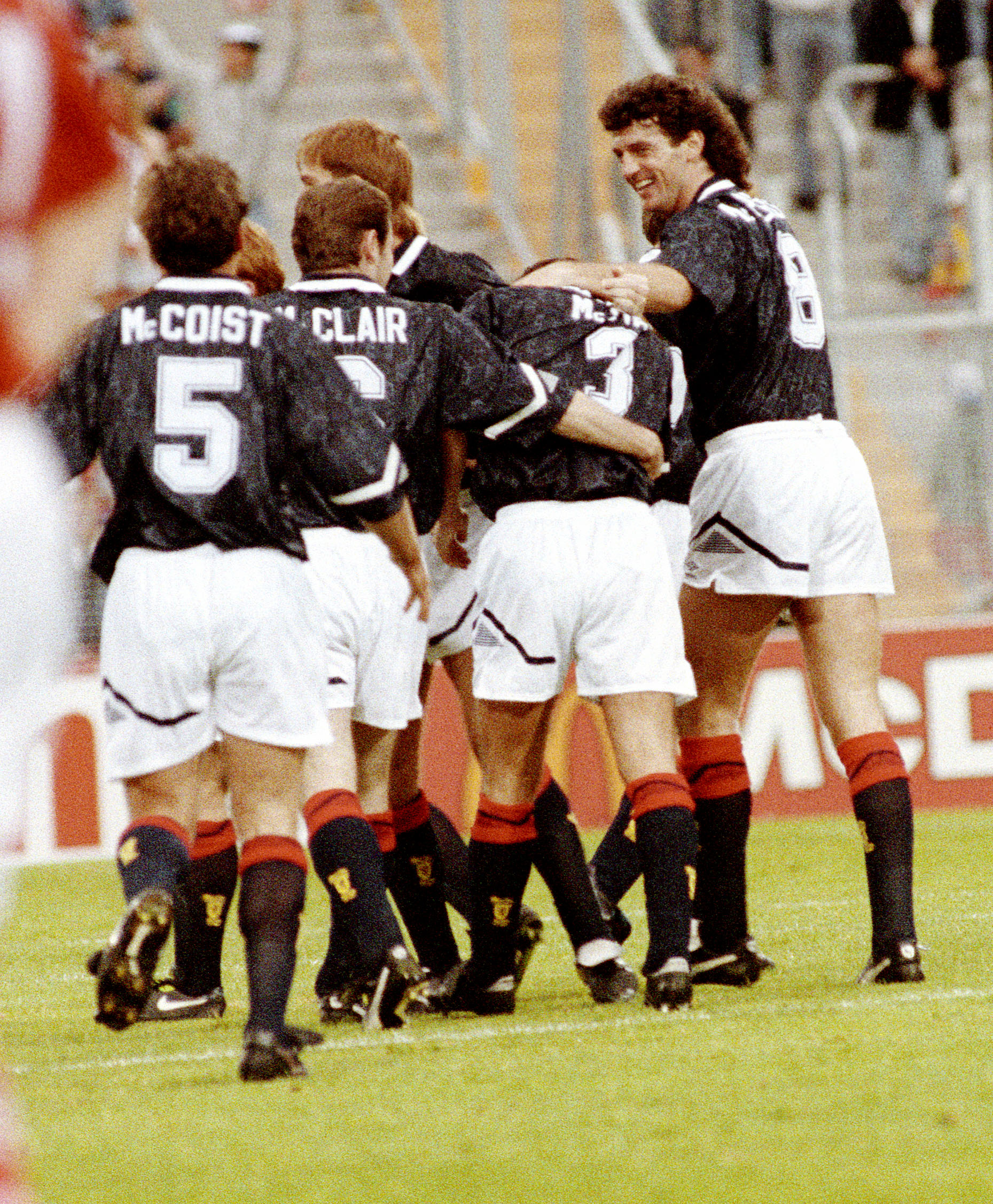 SNS Group
SNS GroupThe CIS side had started with draws against Germany and then the Dutch, so had hopes of beating Scotland and moving into the knockout stages at the expense of one of the more fancied sides.
Scotland had nothing to play for but pride and Ally McCoist had apparently told his Rangers teammate Oleg Kutznetsov that the players had been partying and enjoying their final days in Sweden, with little care for the final match.
The truth was that Scotland were determined to get a statement victory before boarding the plane home.
Paul McStay scored the opener with just seven minutes on the clock, letting fly a powerful shot from outside the box that smashed off the post and rebounded off goalkeeper Dmitri Kharine’s head before bouncing over the line.
Brian McClair made it 2-0 nine minutes later, scoring his first international goal with a low shot from distance that took a deflection before skidding past Kharine and into the net.
Gary McAllister completed the scoring with a late penalty before Scotland celebrated in front of the Tartan Army. The team were headed home but had made their mark.
Heroes return
Thousands gathered to greet the team on their return to Glasgow, recognising the efforts of the team even though the results hadn’t been enough to secure progress.
Roxburgh felt his team could take pride from their performances but felt luck had been against them at crucial moments.
“If you do your very best, you can never have any complaints,” he said. “We have no regrets.”
Follow STV News on WhatsApp
Scan the QR code on your mobile device for all the latest news from around the country



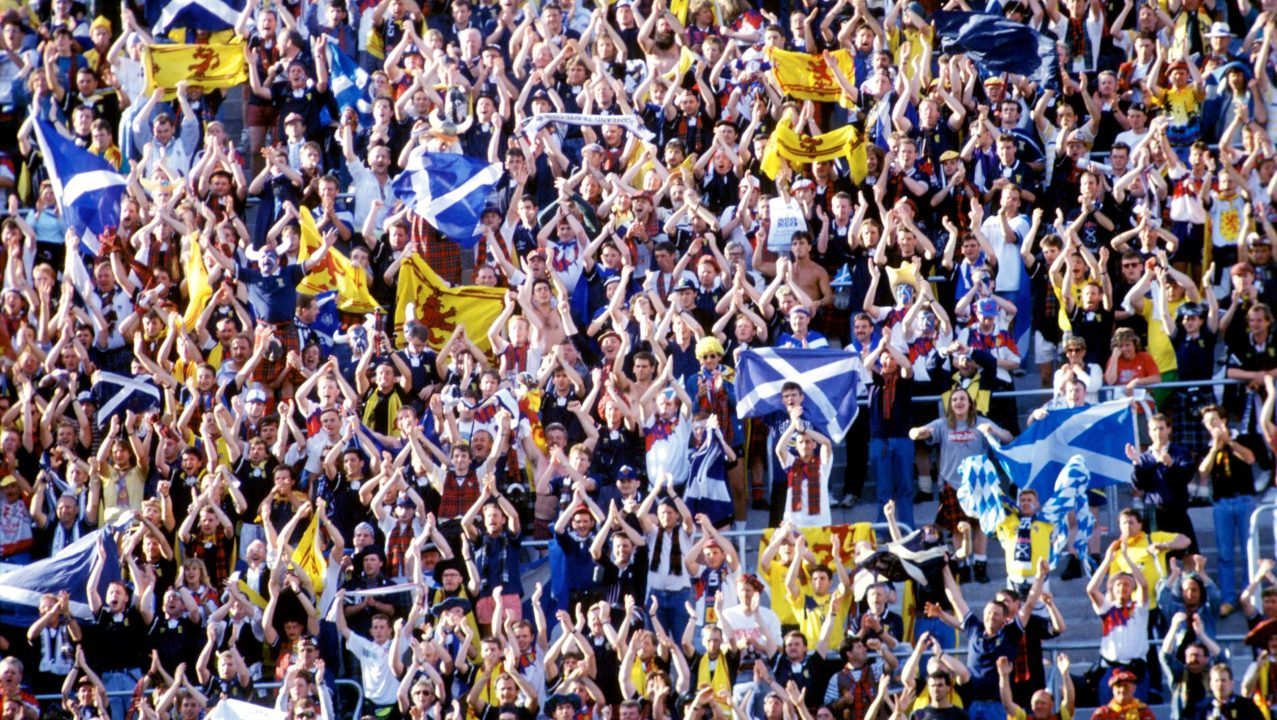 SNS Group
SNS Group















